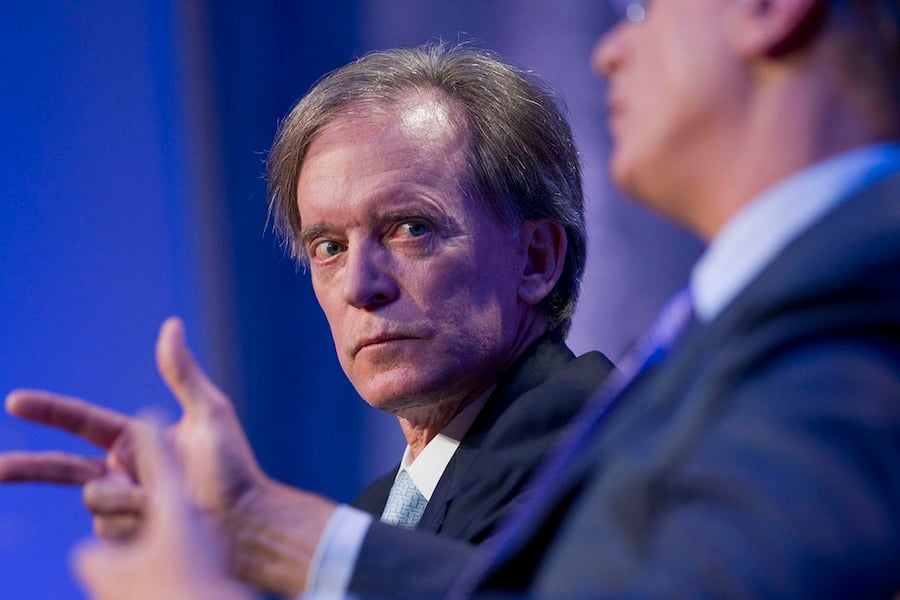Bill Gross' call for extreme Fed action and a stronger universal safety net for workers that have been supplanted by technology is music to the ears of Tangent Capital's chief market strategist Bob Rice.
“The ideas are accurate,” Mr. Rice said of the latest outlook from the Janus Capital bond fund manager, which was published Wednesday morning.
“The Bill Gross rant could have easily been a rant from me,” he added. “There are two themes out there that are going to come together, and he is making the case that they ought to come together.”
Mr. Gross'
long and winding outlook cites the aggressive and steady advances in technology as an imminent threat to both blue- and white-collar workers, which he believes will require the introduction of a government-funded universal basic income program.
No details yet on what the
minimum income would look like or how it would be financed, but Mr. Gross is adamant that the days are near when technology will make many of our jobs obsolete.
“Technology and robotization are changing the world for the better but those trends are not creating many quality jobs,” he wrote. “Our new age economy – especially that of developed nations with aging demographics – is gradually putting more and more people out of work.”
He proposes three possible methods for financing the cost of the new safety net.
The ideas include raising taxes, issuing more debt via the private market, and/or selling debt to central banks so they could finance it “perpetually at low rates that are then remitted back to their treasuries.”
The third option is essentially creating money out of thin air, which is where the Federal Reserve takes over with its so-called
helicopter money.
“It doesn't increase the debt because the Fed will cancel their own debt, because central banks can't go bankrupt as long as they have printing presses,” Mr. Rice said. “The cost of it all should be inflationary, but that's also what they want because they want to inflate their way out of debt.”
Mr. Rice added that the helicopter money phrase, which started with Nobel-prize winning economist Milton Friedman and popularized by former Fed Chair Ben Bernanke, “was kind of meant as a joke, but only kind of as a joke.”
“Instead of talking about universal basic income as a government-funded program and helicopter money as a Fed program, let's bring those two things together,” Mr. Rice said.
As Mr. Gross sees it, this is
no longer a concept that can be ignored.
“Transportation is a visible example as computer-driven vehicles soon will displace many truckers and bus/taxi drivers,” he wrote. “Millions of jobs will be lost over the next 10-to-15 years. But medicine, manufacturing and even service intensive jobs are at risk. Investment managers, too. “
Blair duQuesnay, chief investment officer and principal at ThirtyNorth Investments, has learned to trust the outlooks of people like Mr. Gross, but she does think the threat from technology might be overstated a bit.
“I try to be an optimist, and people have been saying for the past 150 years that technology was going to take over all of our jobs, and that it will be terrible for humanity, but so far technology has been amazing,” she said.
“But, they were right about the new normal, and I didn't believe them then, so I don't want to discount this,” she added. “But I'm definitely not as gloomy and doomy as Bill Gross.”







